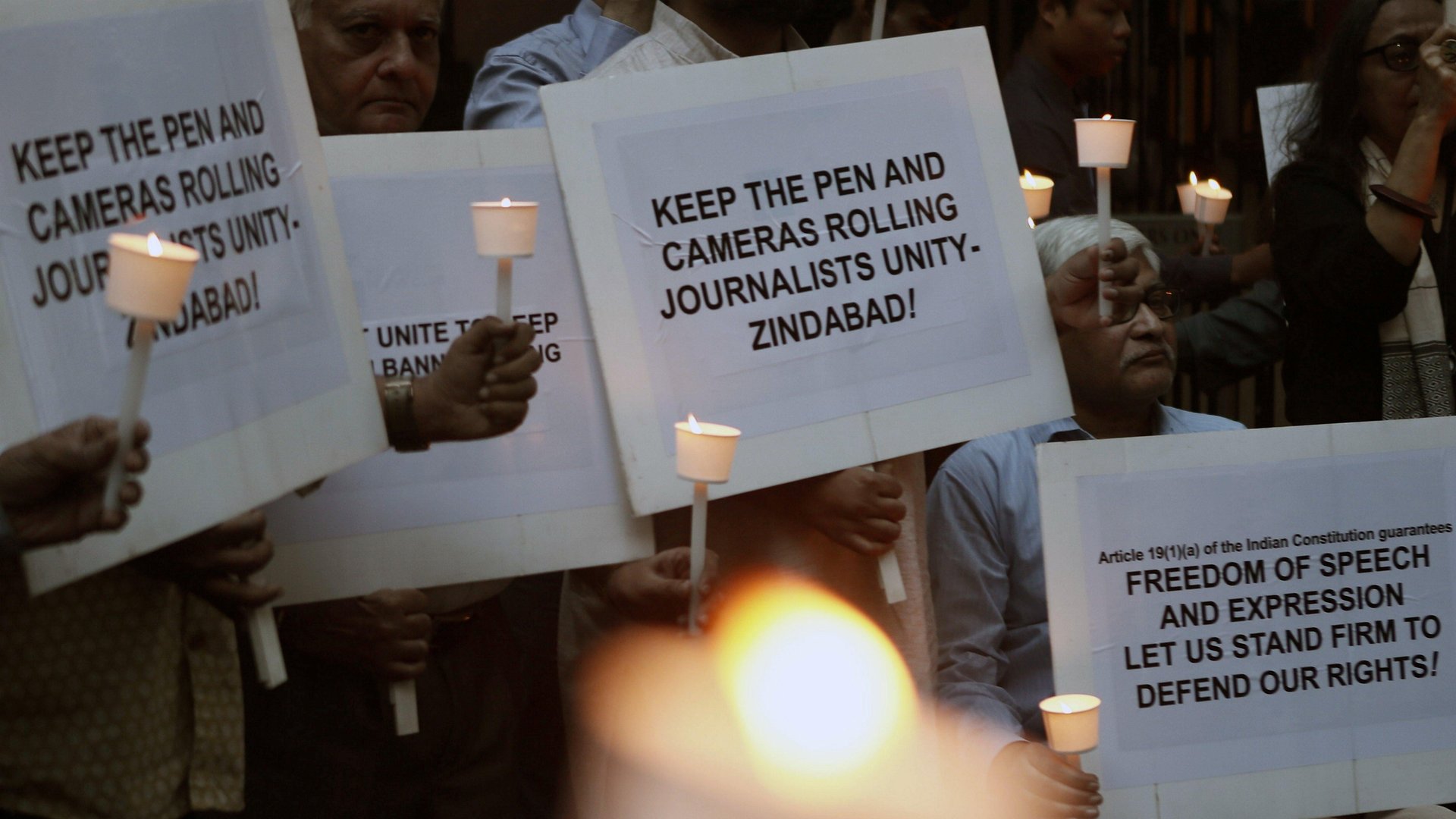India's top court has said the state is using national security as ruse to deny free speech
Supreme Court allows MediaOne to broadcast saying Modi government can't deny TV licence renewal

The Supreme Court of India today came down heavily on the government’s use of national security as a ruse to deny citizens basic rights, including free speech.
“The state is using the plea of national security to deny the rights of the citizens. This is incompatible with the rule of law...The mere involvement of issues relating to national security will not allow the state to not act fairly,” said a bench of chief justice DY Chandrachud and justice Hima Kohli.
“Press has a duty to speak truth to power and inform citizens about hard facts. The critical views of the channel against the govt policies cannot be termed as anti-establishment. This view presumes that press should always support the government. An independent press is necessary for a robust democracy,” it said.
What is the case against MediaOne TV?
The court was pronouncing its judgment on an appeal filed by MediaOne, a television news channel operating in the southern Indian state of Kerala.
The Malayalam language news platform had sought to overturn the January 2022 decision of prime minister Narendra Modi’s government to cancel a broadcasting licence issued to it. MediaOne TV was forced off air after the state, citing “security reasons,” excluded it from its list of broadcasters whose licences were renewed.
On appeal, the Kerala high court upheld the decision of the ministry of information and broadcasting. In March, however, India’s top court granted interim relief to Madhyamam Broadcasting, the owner of the news channel, staying the ban and allowing it to broadcast.
The court today said: “The action of the ministry...produces a chilling effect on free speech and in particular on press freedom.”
The Modi regime has attempted to stifle press freedom
Since 2014, when Modi became prime minister of India, the country has slipped on the World Press Freedom Index. From 140 out of 180 countries in 2014, it stood at 150 last year, according to Reporters Without Borders’ index.
Many have pointed to the cycle of first restrictions being imposed on media outlets and then government-friendly conglomerates taking them over.
Amnesty International has accused Indian authorities of imposing unlawful and politically motivated restrictions on freed speech. Journalists have faced frequent arrests or attacks.
In February, India’s tax authorities raided the BBC’s offices, merely a month after it carried a documentary critical of Modi. In any case, the government had banned the BBC film in India and also forced Twitter and YouTube to take down clips.
The police in Delhi, which falls under the Modi government, recently arrested several people for displaying posters saying, “Remove Modi, save the nation.” Those arrested included the person who had printed the posters.
